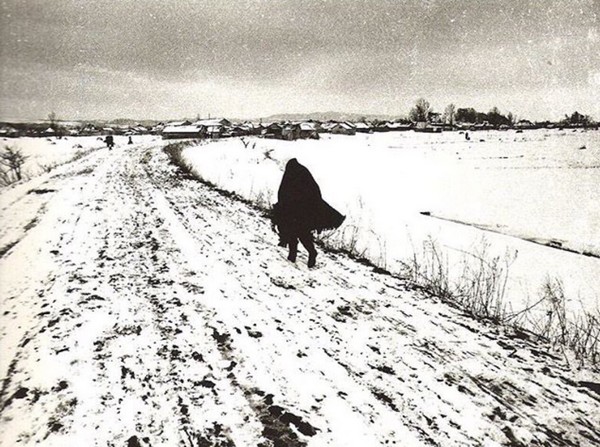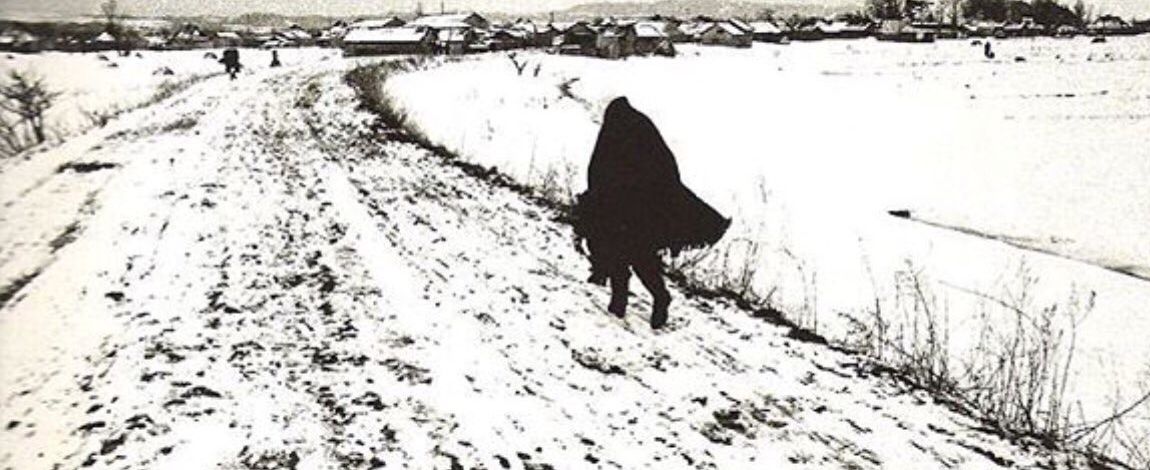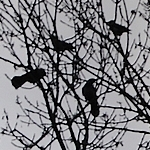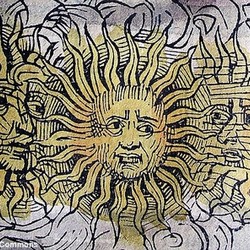
Three Winterreise. Same day. At the same time. In Barcelona. When this article is published, this phenomenon will have just happened. Well, I muss admit it wasn't exactly at the same time but, if everyone was on time, one Gute Nacht and two Das Wirtshaus were heard simultaneously in Barcelona. I don't know if the sky will have shone with a special light, or if there will have been any other external signal to enhance the musical phenomenon.
But while I'm writing, ist's still the future. On Tuesday, November 9, the Winterreise is programmed at L'Auditori performed by Ian Bostridge and Thomas Adès; it's also programmed at the Lied festival LIFE Victoria, this time with Mark Padmore and James Baillieu; finally, at the Liceu, the Ballet Preljocaj's will dance the performance of Thomas Tatzl and James Vaughan. When I realized, I could not believe it; I checked the dates again, just in case, but there was no mistake. My little shoulder devil raised his eyebrows: "Really? But there are only a handful of Lied lovers!". My little shoulder angel argued: "We don't know much about programming a season, but we know at least that it involves dealing with many appointments of many people".
Through simple observation, we notice that Thomas Adès is conducting the OBC the previous weekend, and he stays in Barcelona for two more days until his recital with Bostridge. Simple observation doesn't explain why should Winterreise (and not some other works) be performed, but, if I'm not wrong, that's the usual repertoire when this duo meets. If we look at the LIFE Victoria programme, we can see that it includes Schubert's three main cycles in three days; according to chronological order, Tuesday is the day of Winterreise. Finally, the Ballet Preljocaj offers five performances, and that of 9 November is the fourth one.
Little Devil was still grumbling: "No way! It's a nonsense!", and Little Angel tried to see the positive side of the phenomenon: "Just think it's good news, a sign of Lied is in good health." Little Devil merely snorted.
Is it good news that three Winterreise coincide the same day in Barcelona? Not for Lied lovers, because we don't have the gift of ubiquity (at least, the five performances at the Liceu give us some room). Is it, for the musical life of the city? I think the coincidence of several attractive proposals can be considered a sign of normality (despite the inevitable little frustration when I have to choose, let's say, between Rudolph Buchbinder and Christopher Maltman), but I am not so sure about the coincidence of the same work. Let's take a little distance: how would we see that the Wigmore Hall, the Covent Garden and the Barbican scheduled three Winterreise simultaneously? (Neighbors of London or other European cities, did that ever happen?) Or that the Liceu, the Palau de la Música and the Auditori programmed Beethoven's Ninth Symphony on the same day at the same time? Would we celebrate it as a sign of good musical health, or would we think it's absurd? Finally, is it good news for the work itself? Or could this insistence in some way harm it, trivialize it? Little Angel's words reassure me: "Winterreise is a masterpiece, it's indestructible", while Little Devil pinches me and whispers in my ear: "Christmas is coming; can't you imagine a perfume advertisement with oneiric images and unintelligible words, while Täuschung plays?" Little Devil knows how to hurt me, and I don't mean the pinch.
I should focus, because if we watch this advertisement on TV in a few days, won't be a consequence of the phenomenon of 9 November. The fact is that these three Winterreise, with that heard at LIFE Victoria in September and the one programmed by the Liceu in March, make me ask somewhat sceptical whether the cycle became as popular as Beethoven's Ninth Symphony. And Little Devil says: "You Lied lovers and your cliques! Don't tell me that it bothers you, that Winterreise would become popular instead of remaining your masterpiece!" It's not that, Little Devil, it's not that. It's just that the experience says that many music lovers adore Schubert's cycle, but many more find it boring. And I find it hard to believe that a sudden and huge conversion happened. I would celebrate, but it's hard to believe at the moment.
Anyway, let's assume it's true; let's assume that an enthusiastic admiration for this work aroused. Would this involve new, enthusiastic Lied lovers, the famous new audiences? I'll tell you an anecdote. A few years ago, at the end of a Winterreise performance, I heard a gentleman saying: "I don't like Lied, but that's not lied at all!". What did he wanted to say? Maybe he considered Winterreise to be such a special work that it was unclassifiable? I thought about it these days, when I wondered if this abundance of Winterreise performances would lead to an increase in the audience of the genre. Wouldn't be great that every song recital were sold out? Only time will tell and, if this sudden interest in Winterreise isn't a mirage, it will tell soon.
As I don't want to ask you for more time, I better end here my musings on the phenomenon of 9 November and suggest a song we listened to almost ten years ago, but in another interpretation. Auf dem Flusse, no. 7 from Winterreise, performed by Florian Boesch and Malcolm Martineau.
Der du so lustig rauschtest,
Du heller, wilder Fluß,
Wie still bist du geworden,
Gibst keinen Scheidegruß.
Mit harter, starrer Rinde
Hast du dich überdeckt,
Liegst kalt und unbeweglich
Im Sande ausgedreckt.
In deine Decke grab' ich
Mit einem spitzen Stein
Den Namen meiner Liebsten
Und Stund' und Tag hinein:
Den Tag des ersten Grußes,
Den Tag, an dem ich ging;
Um Nam' und Zahlen windet
Sich ein zerbroch'ner Ring.
Mein Herz, in diesem Bache
Erkennst du nun dein Bild?
Ob's unter seiner Rinde
Wohl auch so reißend schwillt?
Please follow this link if you need an English translation.





 Hans Hot...
Hans Hot...











Comments powered by CComment